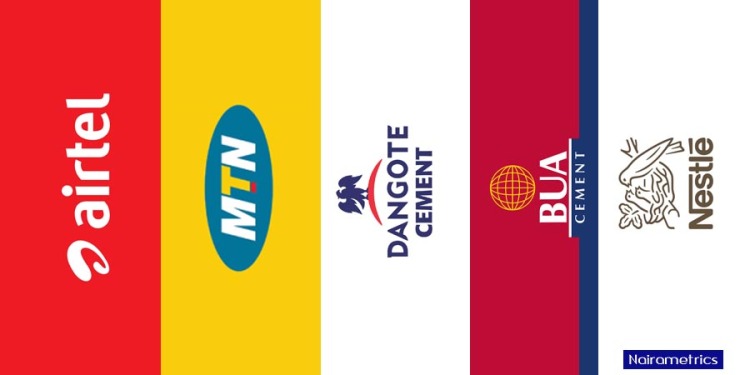Several promising e-commerce businesses in Nigeria have failed to survive, even after seemingly gaining some initial traction. The likes of OLX, Efritin.com, and Showroom.ng are common examples among a myriad of others.
Running an eCommerce business in Nigeria comes with some unique challenges such as logistics and last-mile delivery.
However, one founder thinks otherwise. Chibueze Josh Izuegbo, CEO of Ebeosi, an eCommerce site told Nairametrics:
“When I read or hear people mention logistics as the main problem for the growth of eCommerce in Nigeria and Africa, I laugh. On the contrary, we do not have a major crisis in the Nigerian logistics system, after all, people buy things on Instagram and WhatsApp and pay a much higher amount than they would have paid for delivery if they purchased the same item from a marketplace like Ebeosi or the other two marketplaces.
Chibueze believes the challenges are far from logistics; putting the blame squarely on the current operational model.
“It’s not about logistics, yes we have logistics issues for inter-African trade and trade to the Western world which by the way Ebeosi has solved for some Markets, rather what I know as the major problem is how eCommerce is being operated in Nigeria and Africa from the early time.
“I will mention; lack of trust for online payment which, by the way, the pioneers helped entrench by offering cash on delivery.
“Also, the big company that was there before us, relied so heavily on individual sellers who do not keep stock at some point and that created issues of ‘what you see is not what you get’ as these individual hustlers will copy products pictures online or what they saw on their suppliers’ shop, put it on their store and when you order for it, they will go to market and start looking for it, oftentimes they might not see exactly that. So, they give you what they can find. And many people were disappointed, and you know in marketing, word of mouth is the strongest.
“There is also the issue of fake discounted/very high product prices. The eCommerce marketplace is awash with inflated prices which are said to be heavily discounted sometimes by 80%, these consumers know the prices of those items, now you’re advertising heavy discounts yet the item prices are still way higher than the normal prices in the market.”
For Olufolayemi Kuti, immediate past PR and Communications Manager at Jiji Nigeria, it’s a hydra-headed problem.
“First of all, eCommerce companies through their individual marketing efforts are all continuously sensitizing the market, thus making potential buyers more digitally literate and open to the idea of online shopping. The 21st-century customer also loves to have options and competition has also generally led to lower prices, better service delivery, better innovation, and huge customer-centric approaches in order to gain patronage and affinity by the target audience.
“However, the challenges of eCommerce in Nigeria and indeed Africa are easy to see. Logistics problems, poor internet penetration, less than average wallet sizes, digital illiteracy, internet crime/computer phobia, innate absorption in traditional methods amongst other things have all played their part in threatening Nigeria’s e-commerce prospects.
“For instance, on the issue of Logistics, the Jiji marketplace model decentralizes the delivery process and thus provides the sellers with the opportunity of delivering their products to buyers close to them.”
Kuti also believes social connections are more acceptable in an African market with severe trust deficits.
“The marketplace model fits the African culture like a hand and a glove. In Africa, business is not just business. It’s social. You quickly learn the power of social connections and personal relationships when you spend some time in the country. Mutual obligation and connections are strong drivers for business deals and Jiji allows for this, both online and offline.”
Kuti continues, citing the lack of research and understanding of the business dynamics by most founders.
“Looking at the external factors, we can point a finger at the well-documented challenges. For the internal factors, companies could perhaps have scrutinized the market better and be much more flexible in adapting to changes.
“The Nigerian market is a peculiar one that cannot be defined by general standards. When other marketplaces had for instance focused on C2C markets which worked considerably well in foreign countries, Jiji instead focused more on the B2C aspect, thus attracting a large number of wholesale sellers able to give more value and variety to customers. This helped provide a higher customer lifetime value amid a lower cost of acquisition.”
For Tito Philips, Tech enthusiast and CEO, Differentiate Online, the failure of many eCommerce businesses stems from low sales, which is basically tied to zero online marketing strategies.
Tito also notes that poor customer experience from service failures like delayed deliveries and low-quality products are huge reasons why some of these eCommerce platforms ultimately fizzle out.
Despite these challenges faced by eCommerce businesses, companies like Jiji and Jumia are helping smaller businesses to compete favourably in the market, Kuti said.
“During the pandemic, the impact of Jiji in boosting the businesses of Nigerians in such harsh business conditions could not be more telling. Jiji recorded over 200,000 new sellers and a total of 550,000+ new published ads, within just two months of lockdown. To put it into perspective, the previous year, Jiji Nigeria had only just celebrated having over 1,000,000 ads listed on the platform at any given time.”
What are consumers saying?
While sampling the opinion of eCommerce platform users in Nigeria, Nairametrics gleaned that most consumers turn to online shopping because they seek convenience throughout the entire buying journey, looking out also for fast shipping options, the seamless payment experience, and pay on delivery services.
One user said she prefers using Jiji because of the pay-on-delivery service available. “Most sites, when you order, what you see is not what you get and refund is a long process. But with Jiji, you just have to meet the seller, inspect the product before paying.”
“I prefer shopping with Amazon. They have a faster delivery system and I love their refund policy. If you get a damaged good, they will send a replacement very fast,” another user added.
Bottomline
Ecommerce businesses in Nigeria are faced with the double whammy of dwindling consumer purchasing power due to inflationary pressures and intense competition from other eCommerce platforms as well as traditional brick and mortar stores scattered on almost every street corner in most parts of Nigeria.
Survival, therefore, becomes crucially dependent on a deep understanding of buyer behaviour and innovative sales strategies that keep operational costs low, create unmatched value for customers and improve revenue and profits for the business.
“During economic downtimes as we are currently experiencing in the country, thriving as an eCommerce business owner is mostly hinged upon your ability to offer your customers more options. If you are only selling one kind of product at a particularly premium price, now is not the time to continue with such a pricing strategy, you have to begin to break up your premium product offerings into smaller bits that people can afford,” Tito Philips advises.
















